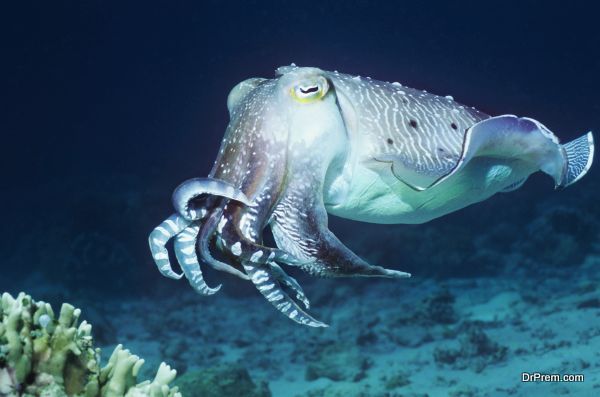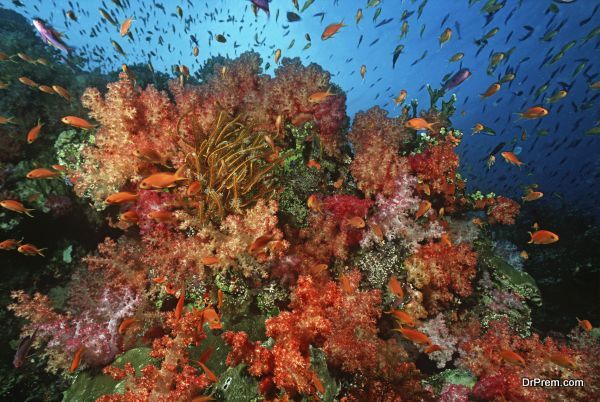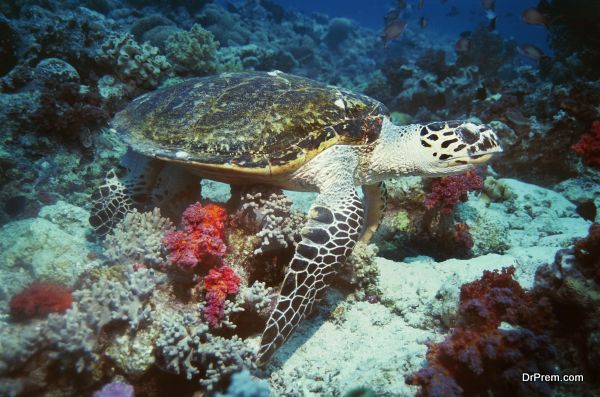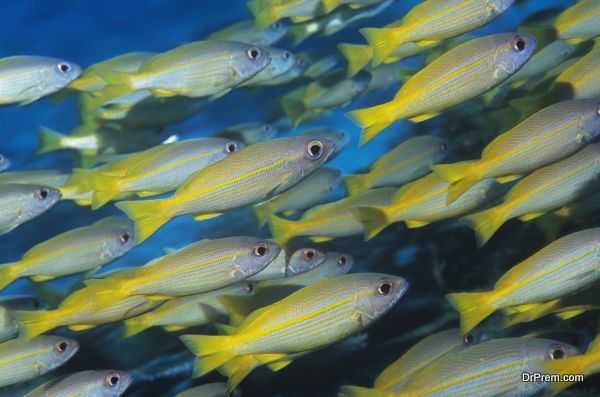World leaders finally made headway on climate change last month when the U.S and China, the world’s two biggest emitters of greenhouse gases, formally ratified the Paris climate change agreement. However, when it comes to marine biodiversity the superpowers are doing too little too late. Without significant changes, UNESCO predicts that more than half of the world’s marine species may stand on the brink of extinction by 2100.
So what can the superpowers such as the U.S and China do to remedy this? First, they should take a look at the impressive efforts of much smaller nations setting a precedent in sustainability.
For many of the world’s smaller islands, climate change is a very real threat to the welfare of their communities and economy. Consequently, many are taking immediate steps to preserving their ecosystems and securing their future. The tiny nation of Grenada, a beautiful unspoilt island in the Caribbean, is leading the way in marine conservation.
Why is marine life so important to Grenada?
Grenada’s charm lies in the fact its islands are wild yet accessible, untouched by the urbanisation and industrialisation of many other Caribbean islands. The unique beauty of its marine life makes the country one of the most popular diving spots in the world.
Although preserving Grenada’s nature is incredibly important to the environment, it is also crucial to the economic growth of the nation. Grenada is largely dependent on tourism, and many visitors to the island come to see the wildlife that thrives there. Almost half a million foreign tourists visited Grenada in 2015, up 12.5% on the previous year.
Grenada is also increasing in popularity with affluent investors, attracted by the opportunities provided by the island’s citizenship by investment programme. Many investors choose to invest in real estate projects, many of which are tailored towards tourism and hospitality.
However, if Grenada’s marine life was harmed, the island could lose its appeal to tourists, which in turn could slow investments in associated real estate projects. To protect its natural riches and stimulate its economic growth, Grenada is leading what it is calling ‘blue growth’, a strategy aimed at supporting the wellbeing of its marine ecology.
Grenada is rebuilding its coral reefs using nurseries and biorock technology
Coral is hugely important to marine biodiversity. Despite making up just 0.2% of our oceans, coral reefs are home to 25% of all fish species and protect our shorelines from major storms.
Grenada is widely considered to be one of the best scuba diving sites in the world, largely due to its expansive reefs. However, a 2014 assessment found that areas of the barrier reef were extremely vulnerable, particularly the Grand Anse on mainland Grenada and the Windward community on the sister island of Carriacou.
To combat this, Grenada are farming ‘coral nurseries’ where live coral is harvested from healthy colonies and propagated in a monitored environment. Once sufficiently matured, the coral is planted onto an existing reef structure.
Scientists have also introduced innovative biorock technology to Grenada. This involves placing an electrically conductive frame on the seabed. A small electric current is used to initiate an electrolytic reaction, which causes the natural formation of mineral crystals. Then, fragments of live coral are transplanted onto the biorock structure. This is designed to attract free floating coral polyps and other marine species such as algae, anemones, octopi and crabs.
Putting lionfish on the menu to tackle the invasive species
Another serious threat to the marine ecosystem in Grenada is the lionfish. The lionfish is native to the Philippines, however having been released into Florida waters 20 years ago, the species has become an incredibly invasive and destructive force in the Caribbean.
This highly venomous species is seemingly unstoppable. They lay up to 3000 eggs every four days, eat half their weight in local reef ecology each day and have no natural predator. A single lionfish can reduce native marine creatures by 80% to 90% in its range within just 5 weeks.
However, Grenadian locals have come up with a simple and rather delicious solution to the problem – stick them on the menu. Lionfish is becoming an increasingly popular delicacy in local restaurants, so much so that the phrase “eat em to beat em” has caught on.
The answer now is increasing the awareness, both on how to fish the animal safely and how delicious lionfish can be. The Grenada Lionfish: Save Our Reefs social media campaign aims to raise awareness of the damage caused by lionfish. To get the local community involved, the campaign encourages people to brag about their catches and share their favourite lionfish recipes.
Grenada may be small in comparison to the world superpowers, but they understand that marine conservation is vital to both their own and the rest of the world’s future. If you ever get to visit, remember to try the lionfish!
Article Submitted By Community Writer





